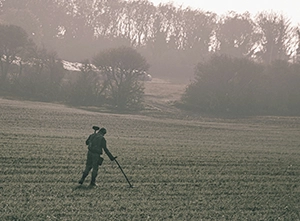
Metal detecting seems like a quirky and fun hobby, but it actually has a pretty richhistory and it didn’t just emerge out of nowhere, instead it gradually evolved into something that lots of people do for both fun and profit. In this blog post we are going to be doing a quick overview about how metal detector hobby turned up.
Metal detectors are old devices, with the first experimental ones being created in the 1840s. It wasn’t until a hundred years later that what most people would recognize as metal detectors were invented and produced in large numbers.
However, the design and cost of these early metal detectors meant that they really didn’t have much use outside of military, medical, or governmental applications. These devices were also quite crude and couldn’t be used for any sort of fine tuned detection (they could only detect the presence of metal but nothing more specific).
In the 1970s and 1980s, this began to change. Metal detectors not only became lighter, cheaper, and easier to use, but they also became more advanced.
So, metal detectors were now not only able to detect the presence of metal, but they could also detect things like the type of metal, how deep in the ground it was, its size, and other useful information. This led to the explosion of metal detecting as a hobby. The first metal detecting group was formed in 1984 in the USA (the Federation of Metal Detector and Archaeological Clubs).
The hobby is still popular today and can broadly be divided into two groups. On the one hand, you have people who enjoy the exploration aspect of metal detecting.
They love going into empty fields or empty beaches and looking for lost treasures or trinkets that, while not necessarily valuable, are at the very least interesting. On the other hand, you have those who are interested in making some money from the hobby. They look for gold or other valuable metal items so that they can sell them.
Both versions of the hobby are valid and many people belong to both groups (they have fun metal detecting but they also like making a profit).
The hobby has changed a bit as well as technology advances. Not only are metal detectors better today, but many use things like social media to try and turn metal detecting (which is usually solitary hobby) into more of a group experience by broadcasting or streaming themselves detecting or uploading their finds.
The future of the hobby is uncertain. In most countries, it is already regulated by law, so there is little risk of it being banned in the future. However, most metal detectors tend to be looking for old objects.
As time has gone on, a lot of these have already been found. While it is still a great time to get into metal detecting, it is becoming more difficult to find interesting objects. If you are still willing to put in the work, then you can still find some amazing and valuable items while detecting, but it has definitely gotten harder.
Hopefully you found this deep dive into the history of this interesting hobby to be worth your time; you can now say that you know how the metal detecting hobby turned up.

